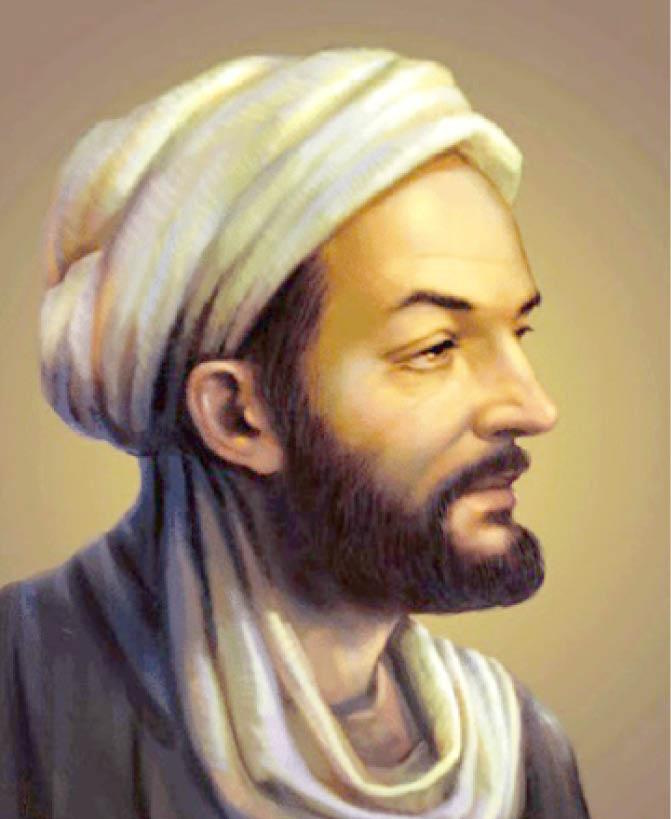"The Polymath of Persia - Ibn Sina (Avicenna)
In the heart of Persia, amidst the bustling streets of Bukhara, there lived a polymath whose intellect soared to the heavens and delved into the depths of the human soul. His name was Ibn Sina, but to the world, he would be known as Avicenna, the Prince of Physicians.
Born into a world of turmoil and strife, Ibn Sina's early years were marked by a thirst for knowledge that knew no bounds. Under the tutelage of learned scholars, he devoured the works of Aristotle and Galen, absorbing the wisdom of the ancients like a sponge.
But it was not merely in the realm of theory that Ibn Sina excelled. From a young age, he displayed a keen interest in the practical sciences, spending countless hours in his father's apothecary, concocting potions and elixirs that would later revolutionize the field of medicine.
As the years passed, Ibn Sina's fame spread far and wide, drawing students and scholars from distant lands to drink from the wellspring of his knowledge. His magnum opus, """"The Canon of Medicine,"""" became the cornerstone of medical education in both the Islamic world and Europe, a testament to his unparalleled mastery of the healing arts.
But Ibn Sina's contributions extended beyond the realm of medicine. In the fields of philosophy, mathematics, and astronomy, his insights would reshape the intellectual landscape of the Islamic world, laying the foundation for future generations of scholars to build upon.
Yet, for all his achievements, Ibn Sina remained humble, ever mindful of the vast expanse of knowledge that lay beyond the reach of mortal minds. His legacy, however, would endure long after his passing, a beacon of light amidst the darkness of ignorance.
Influence and Legacy:
Ibn Sina's works would go on to influence generations of scholars, shaping the course of Islamic intellectual history for centuries to come. His synthesis of Aristotelian philosophy with Islamic theology laid the groundwork for the development of Islamic philosophy, while his advancements in medicine revolutionized medical practice in both the East and the West.
Yet, despite his monumental contributions, Ibn Sina's name would often be overshadowed by those of later luminaries. It was not until the Renaissance that Western scholars would come to recognize the debt owed to this prince of physicians, whose intellect had paved the way for the great intellectual flourishing of the Islamic Golden Age.
Today, as we ponder the mysteries of the human body and the universe beyond, let us remember the polymath of Persia whose legacy endures as a testament to the boundless potential of the human mind.
Notable Works:
1. """"The Canon of Medicine"""" - A comprehensive medical encyclopedia that became the standard textbook in Islamic and European universities for centuries, covering anatomy, physiology, pathology, and pharmacology.
2. """"The Book of Healing"""" - A magnum opus on philosophy and natural sciences, synthesizing Aristotelian philosophy with Islamic theology and exploring various branches of knowledge, including logic, metaphysics, and natural philosophy.
3. """"The Book of Salvation"""" - A philosophical treatise on ethics and the nature of existence, delving into questions of morality, virtue, and the pursuit of happiness.
Related Scholars:
Ibn Sina's legacy resonated with later Islamic philosophers and scientists, including Al-Farabi, Al-Kindi, and Averroes (Ibn Rushd), who built upon his ideas and expanded the horizons of human understanding.
"






Sifiso Buthelezi
Delete Comment
Are you sure that you want to delete this comment ?
Delete Comment
Are you sure that you want to delete this comment ?
Amira Hamoud
Delete Comment
Are you sure that you want to delete this comment ?
Aisha Patel
Delete Comment
Are you sure that you want to delete this comment ?
SpirituallyGrounded
Delete Comment
Are you sure that you want to delete this comment ?
Sandile Ngcobo
Delete Comment
Are you sure that you want to delete this comment ?
Ayesha Doumbia
Delete Comment
Are you sure that you want to delete this comment ?
HumbleHarbor
Delete Comment
Are you sure that you want to delete this comment ?
Safiya Al-Hadi
Delete Comment
Are you sure that you want to delete this comment ?
EternalEssence
Delete Comment
Are you sure that you want to delete this comment ?
DivineDuskIslam
Delete Comment
Are you sure that you want to delete this comment ?
TheIslamicNexus
Delete Comment
Are you sure that you want to delete this comment ?